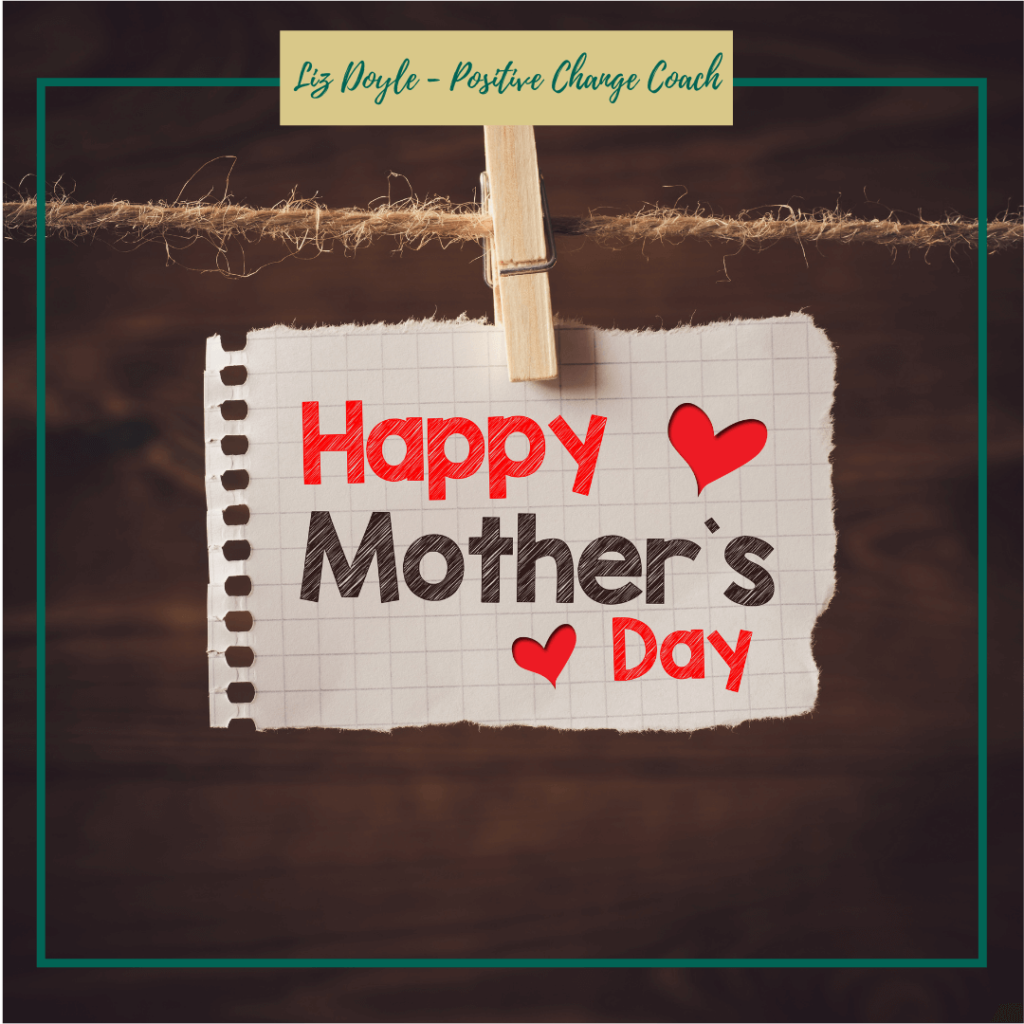I hope it’s a happy mothers day for all mother figures.
Here in the UK on Sunday, it was Mother’s Day and my daughters have always made a lovely fuss of me since they were very small. Some years they would all make me gorgeous home made gifts and cards. And I have treasured them all. As they are now all young women, they still give me flowers and sometimes make me something (this year my youngest made me a beautifully printed card) but… those extra special cuddles and kisses are not so numerous which is how life is and that’s OK.
But it hasn’t always been an easy day because my relationship with my mum was not an easy one and she wasn’t a very easy woman to love. She was distant and cold as well as being pretty angry most of the time. I now really understand and “get” her story of what made her that way. I have forgiven her many times although she passed quite a while ago and know that she couldn’t really give the love she was never given in the first place. Because of Louise Hay, I totally understand that she was doing the best she could at the time with the knowledge, awareness and understanding that she had then.
Here’s a very short video on why forgiveness sets you free 🦋
Mother’s Day can be a difficult day
I know I’m not the only one who has found Mother’s Day a difficult day. Maybe because you don’t get on or she’s no longer around or you can’t get to see her. And of course, it can so very hard for those who are not able to have children when that’s all they want in the world. These sorts of days can be really difficult reminders especially when we see all the happy posts on social media.
All kinds of mums
Nowadays, I understand that Mother’s Day isn’t just for birth mothers but all kinds. It’s also for them.
Mum who has a lost a child
Adoptive mum
IVF mum
Surrogate mum
Dad who has to be a mum too
Mum of her furbabies
Mum of a special needs child
Mum of a child with health challenges
Mum who feels like she’s failing
You are not forgotten and you are never alone and if I’ve missed any other kind of mum, it wasn’t intentional.
What goes on in that womb!
I have been reading up a bit more about what happens as the baby grows inside the mother and although I knew a fair bit (I am a mum of 3 girls after all), I have either forgotten some of this or never knew it in the first place. It just blew me away.
When pregnant, the cells of the baby migrate into the mother’s bloodstream and then circle back into the baby, it’s called “fetal-maternal microchimerism”.
For 41 weeks, the cells circulate and merge backwards and forwards, and after the baby is born, many of these cells stay in the mother’s body, leaving a permanent imprint in the mother’s tissues, bones, brain, and skin, and often stay there for decades. Every single child a mother has afterwards will leave a similar imprint on her body, too.
Even if a pregnancy doesn’t go to full term, these cells still migrate into your bloodstream which is a lovely thing to know as I miscarried two babies.
Research has shown that if a mother’s heart is injured, fetal cells will rush to the site of the injury and change into different types of cells that specialise in mending the heart.
The baby helps repair the mother, while the mother builds the baby.
How cool is that?
This is often why certain illnesses vanish while a woman is pregnant (now so much makes sense).
It’s incredible how the mother’s body protects the baby at all costs, and the baby protects and rebuilds the mother back – so that the baby can develop safely and survive.
Studies have also shown cells from a fetus in a mothers brain eighteen years after she gave birth. How amazing is that?
If you’re a mum, you know how you can intuitively feel your child even when they are not there…
Well, now there is scientific proof that mums carry them for years and years even after they have given birth to them.
I think this is all so beautiful.
Why is Mother’s Day different in the UK?
Where does Mothering Sunday in the UK originate from? I’ve been looking this up too
It always falls on the 4th Sunday in Lent – exactly 3 weeks before Easter, in the UK and some others parts of the world.
Originating in the Middle ages when children who were employed in domestic service were allowed to go home to their “mother church” – so the connection with mothers was not as we celebrate it today.
Naturally the journey home became an opportunity for families to get together and the children would pick flowers for their mothers on their way home.
It was also a time when the fasting rules of Lent were slightly relaxed, and also it became known as Simnel Sunday – a day when Simnel cakes are traditionally baked.
Mothering Sunday is celebrated on different days around the world – in the U.S and most of Europe this year it will be on 8th May and in France they celebrate on the last Sunday in May.
If you are lucky enough to have your mother still with you and you have a loving and nourishing relationship- treasure and value that relationship. But we know there can be so many motherly figures who can fulfil that role. The most important thing is to know you are always loved.
If you would like to find out more about how I can help you move on from difficult relationships and know that you are always enough just as you are, follow this link

